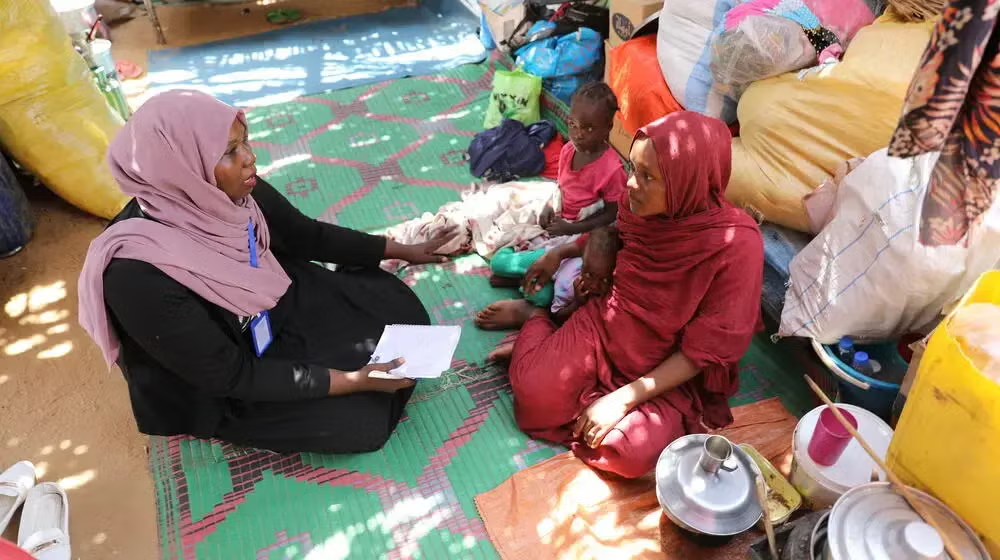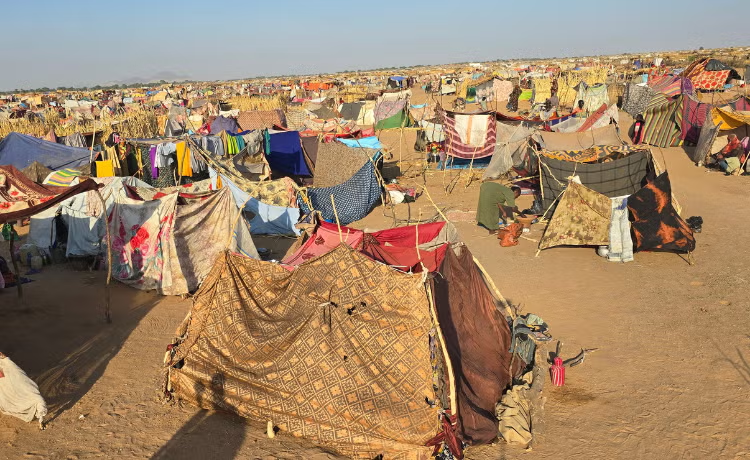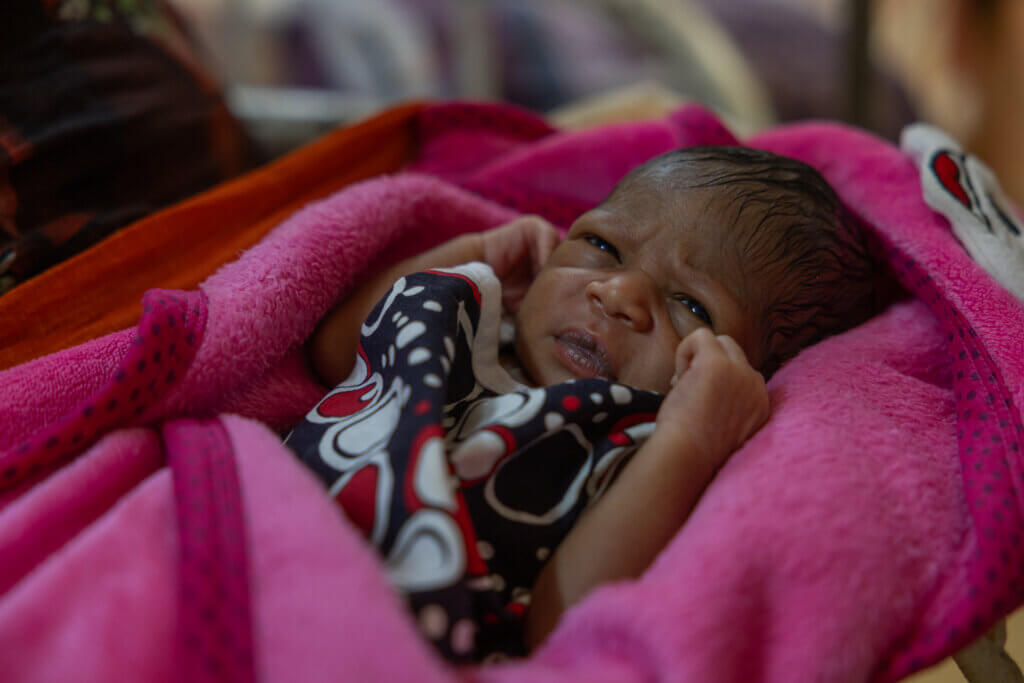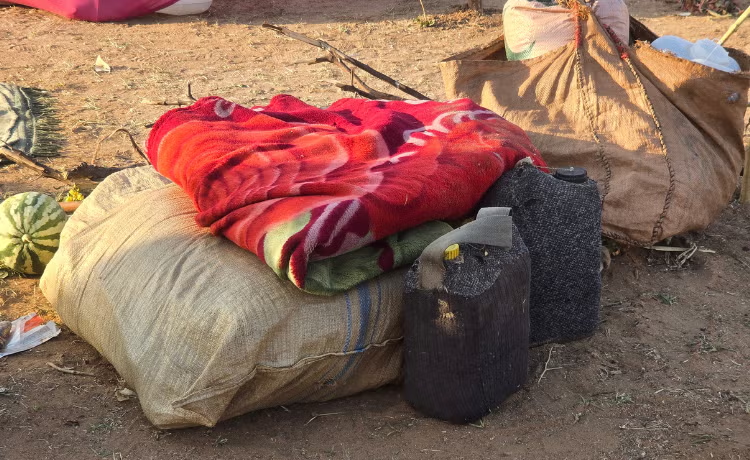Sudan’s Women at the Breaking Point: Violence, Displacement, and a Collapsing Health System

TAWILA/AL DABBA, Sudan – The dire humanitarian crisis in Sudan has escalated. After more than 530 days of siege, shelling, and bombardment, the Rapid Support Forces have taken El Fasher, the capital of Sudan’s North Darfur state. This seizure has unleashed a new wave of violence and forced mass displacement across the region. Reports of sexual violence, kidnappings, and executions continue to rise.
Close to 71,000 people fled the city in a single week, joining the hundreds of thousands already displaced across the region. For women and girls, their journey to places like Tawila and Al Dabba is not a passage to safety, but a perilous ordeal marked by extortion, rape, and death.

The Scars of Escape
Survivors who reached Tawila recounted experiences of harrowing violence and loss to UNFPA, the United Nations sexual and reproductive health agency.
“They killed my husband in front of me,” said Asmaa*. “He could only afford to pay the ransom for me and our children. Then they killed him.”
Women and girls also face the immediate and pervasive threat of sexual violence.
Salam*, 19, shared a distressing account of her assault during her escape: “They asked if I was a virgin. When I said yes, they took me to their office and raped me before allowing me to continue walking.”
Salam later received clinical management of rape services from UNFPA partners in Tawila.
For those arriving in Al Dabba and Tawila, momentary relief quickly gives way to the harsh reality of a continuous fight for survival. Tawila, a once-small rural outpost 30 miles west of El Fasher, was already sheltering more than 652,000 people displaced by previous attacks.
The current influx has pushed the limited infrastructure past the breaking point. Makeshift tents, if available, offer minimal protection from the rainy season.
Many families sleep in the open, heightening women and girls’ risks of violence, exploitation, and abuse. Insufficient communal bathrooms and the lack of privacy also force women and girls to seek secluded areas at night, compounding protection risks.
In Al Dabba, hunger and disease—including a cholera outbreak across the country—add a lethal layer to this crisis. Overcrowded conditions in the camps create a perfect storm for preventable illnesses to spread, threatening the lives of the most vulnerable, especially pregnant women and children.
Survivors often describe feeling despair.
Manasik* arrived in Al Dabba after a grueling 12-day journey. She lost her father and three-year-old sister to a mortar attack in El Fasher. “For nine days, we didn’t eat or drink anything. Here, even toilets cost money… Sometimes I wonder whether we should have stayed under the mortars and shooting. Maybe I should never have left.”

El Fasher’s Last Maternity Hospital Faces Devastating Attack
As violence escalates across North Darfur, the last partially functioning maternity hospital in El Fasher has become the latest target. During the last week of October, UNFPA lost all contact with the hospital’s staff members after an attack. One week later, they received confirmation that a devastating massacre had taken place inside.
At least 460 people—including pregnant women, new mothers, and newborns—were killed in the attack. Of the 98 staff members on duty that day, 90 remain missing.
“I was performing surgery when the shelling began,” said Dr. Suhiba, a gynecologist working at the hospital. “A mortar hit the building. The woman’s wounds were open, and everyone was running around me. I feared she would die on the table.”
This maternity hospital had served as a critical lifeline throughout the siege. This attack leaves more than 6,200 pregnant women in El Fasher without access to safe delivery care as violence, hunger, and disease intensify. With no functioning health facilities left in the city, pregnant women now face life-threatening complications on their own.
UNFPA is working urgently to scale up services in surrounding areas to support the tens of thousands of people who fled El Fasher in the past week, but access remains severely restricted and needs continue to grow.

Averting Further Suffering: An Urgent Call
In the wake of this new development in the Sudan crisis, UNFPA teams are working to keep essential services running for women and girls. We’re operating a 24-hour basic emergency obstetric and newborn care facility in Tawila and running five women and girls’ safe spaces in Tawila and Al Dabba to provide holistic support for survivors of violence.
Midwives, social workers, case managers, and psychological support staff have been deployed to deliver maternal health, protection, and mental health services. Reproductive health medicines—including supplies for emergency obstetric care and the clinical management of rape—have been provided to Al Dabba Maternity Hospital, with more supplies and hygiene items prepositioned in South Darfur.
Yet the scale of the crisis demands much more. An immediate, unified response is essential—including rapid and unimpeded humanitarian access so lifesaving aid can be delivered. The international community must urgently increase financial support to avert a massive, preventable loss of life.
*Names changed for safety and protection.